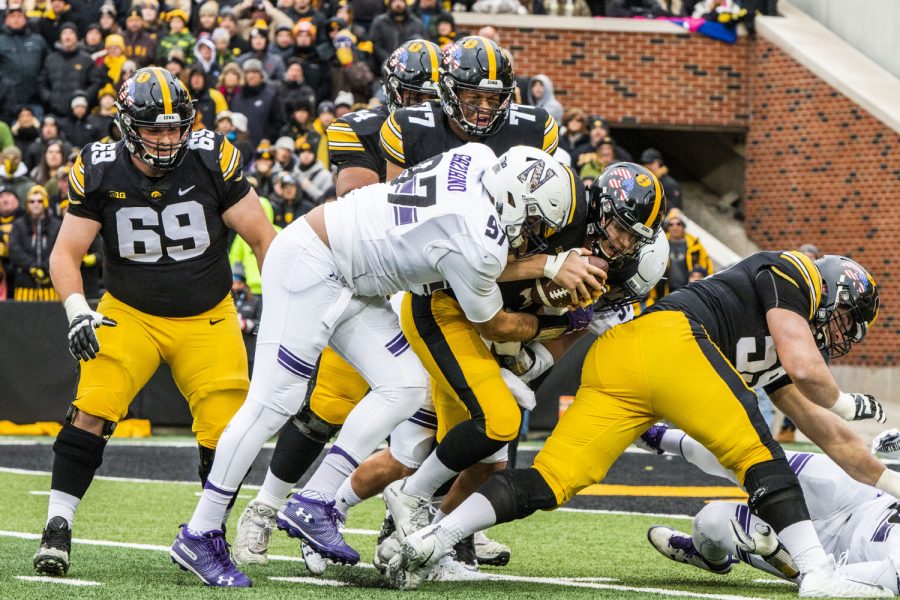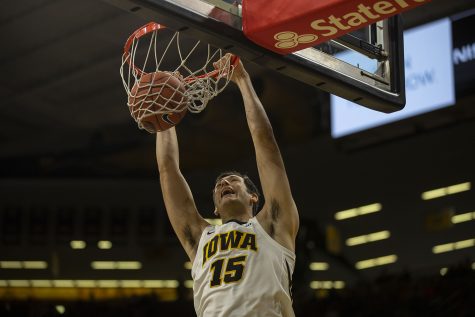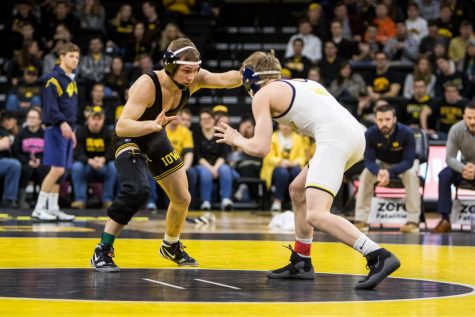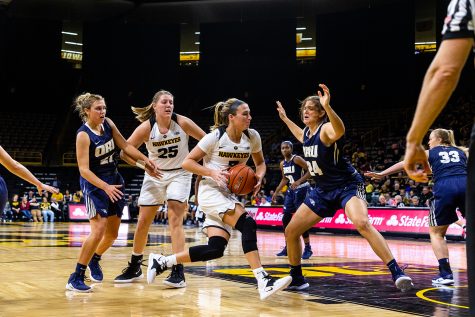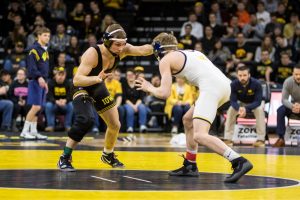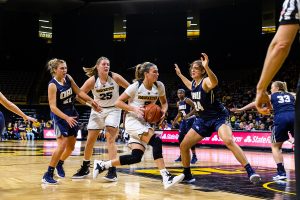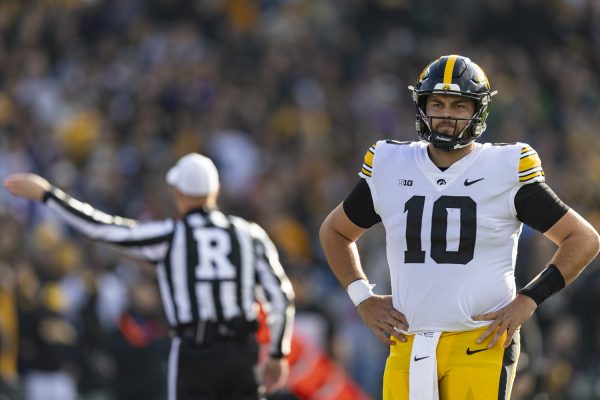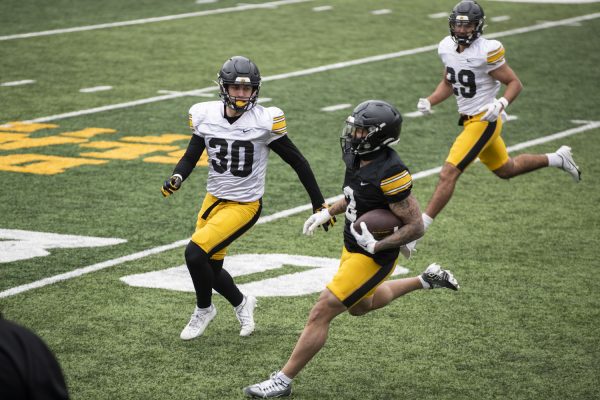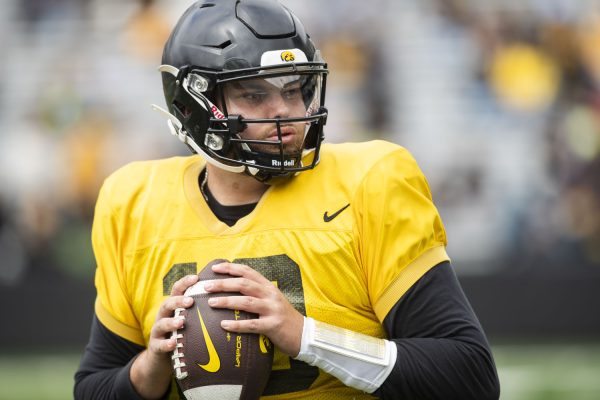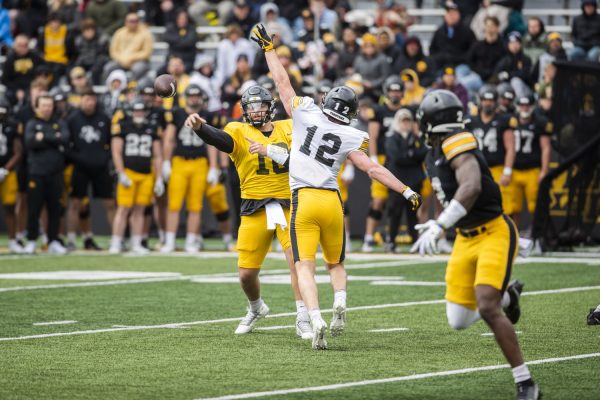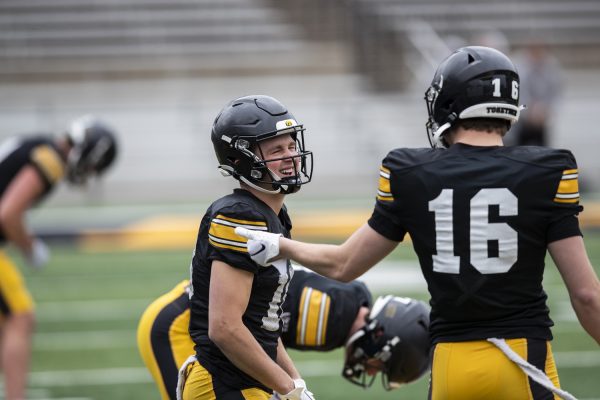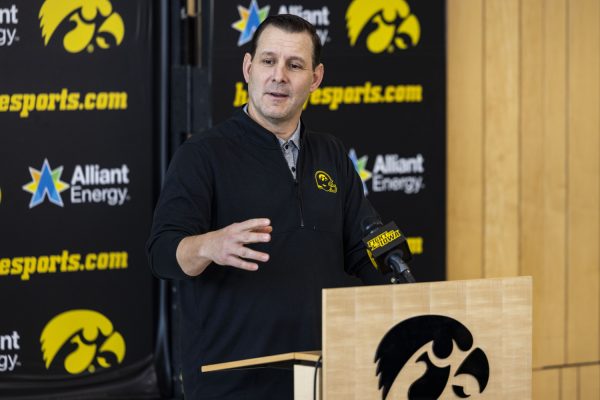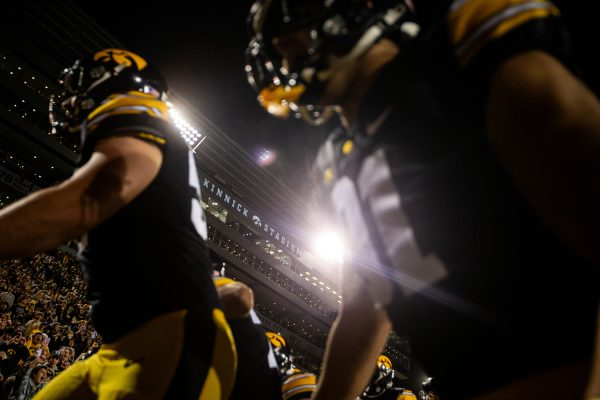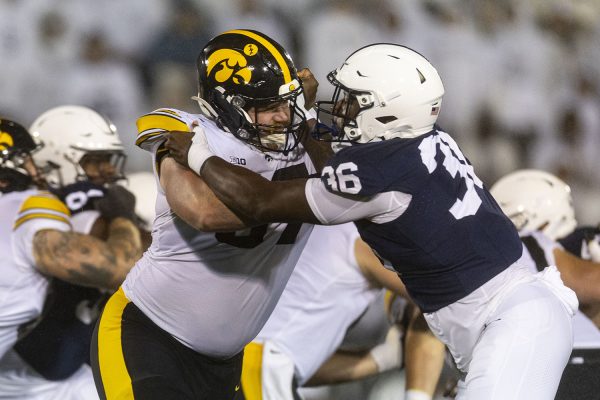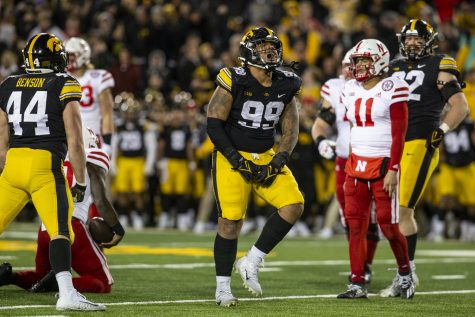Iowa’s offense looks to get back on track on the road
Iowa’s offense has been in a funk during its three-game losing streak, but a cellar-dwelling Illinois defense might help right the ship.
Northwestern defensive lineman Joe Gaziano tackles Iowa quarterback Nate Stanley during the Iowa/Northwestern game at Kinnick Stadium on Saturday, Nov. 10, 2018. The Wildcats defeated the Hawkeyes 14-10.
November 16, 2018
For the first time since 2012, Iowa football has lost three-consecutive conference contests.
2012 was Iowa’s first season with offensive coordinator Greg Davis (sorry for the nightmarish flashbacks, Hawkeye fans), and, six seasons later, the problem remains the same: a stagnant offense haunts the program, despite a defense keeping the team competitive in each game.
Aside from the shootout loss to Purdue (there was no defense on either side), Iowa has struggled to move the ball consistently. In the three-straight losses, Iowa has averaged a little fewer than 25 points per game. Through Iowa’s first seven games, though, the Hawkeyes averaged 30.6 points per game, topping the 30-point mark four times.
RELATED: Hawkeyes look to fix the run game production
Quarterback Nate Stanley fared well in Iowa’s loss to Purdue, throwing for 275 yards, a touchdown, and no interceptions, but the Boilermakers rank in the bottom of the conference in pass defense.
Against Penn State and Northwestern, teams that rank sixth and ninth in the conference, respectively, in passing yards allowed, Stanley threw for 474 yards, 1 touchdown, and 2 interceptions. He completed exactly 50 percent of his passes in both games combined.
Stanley said that the current situation is “definitely up there” as far as challenges go, and he’s feeling the pressure — before the losing streak, Iowa had its sights (realistically) set on winning the West and representing the division in the Big Ten title game. Now, it’s about salvaging the season.
“Being the quarterback, it’s a big leadership position,” Stanley said. “I think I put a lot of [pressure] on myself to make sure that I’m doing what I need to do, not only just leading by talking but leading by example as well — just doing everything I can to make sure everyone know that I’m doing my best, doing everything I can to improve and make my teammates better.”
The offensive woes can’t be fully placed on Stanley, though — the Hawkeye offense hasn’t run the ball well all season, let alone during the three-game losing streak.
In the three losses, Iowa averaged just 105.7 yards per game, almost 40 yards fewer than its season-average total.
“Every play starts up front, it starts with us, so we take that personally, just like how we take it personally when Nate gets hit,” offensive tackle Tristan Wirfs said.
Luckily for Iowa, this week’s contest features a date with an Illini defense ranking in the bottom of the Big Ten in rushing yards and touchdowns allowed.
Illinois has given up 2,479 rushing yards and 52 touchdowns this season — both dead last in the Big Ten — and that bodes well for an Iowa team ranking 11th in the conference in rushing yards; Saturday just might be the time when the running game clicks.
“It’s something we’ll keep working at,” Iowa head coach Kirk Ferentz said. “I think the guys are working hard at it, and we just haven’t gotten it to the point where we’d like to, and we’ve got two games left, so this would be a great time to get it started.”
With two games left, both winnable contests (at least on paper), the Hawkeyes do have plenty to play for despite fumbling away a chance at a Big Ten championship game.
The Hawkeyes have a shot to win eight games in the regular season, and that could very well result in a warm-weather, solid bowl for the program.
The challenge is to keep everyone focused on the task at hand, rather than reminiscing on missed opportunities.
“You’re always trying to build toward something, and it’s really important,” Ferentz said. “You’re either adding to it, you’re contributing, or you’re taking away from [it].”



